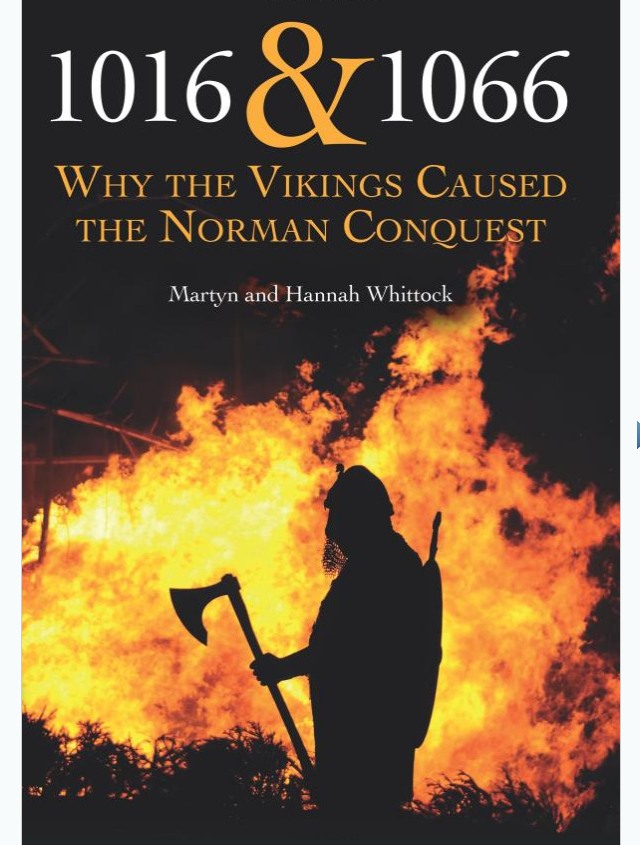1016 and 1066: Why the Vikings caused the Norman Conquest
Book review

1016 and 1066: Why the Vikings caused the Norman Conquest
1016 and 1066. Why the Vikings caused the Norman Conquest, Martyn and Hannah Whittock, Robert Hale, 2016, paperback, 160 pp., £12.99, ISBN 9780719819193
Martyn Whittock, a secondary school history teacher (many of whose 42 history books I used in my own teaching), and Hannah Whittock, who read Anglo-Saxon, Norse and Celtic at Cambridge University where she also completed an MPhil in Anglo-Saxon history, have jointly authored this new study. It offers a fresh perspective on eleventh century English history, challenging the side-lining of Cnut’s conquest by presenting compelling evidence that ‘the Viking Conquest of 1016 was the single most influential cause of 1066'.
They argue that this neglected Viking Conquest of 1016 led to the exiling to Normandy and Hungary of the legitimate Anglo-Saxon heirs to the English throne. It also
‘entangled English politics with those of Normandy and Scandinavia, purged and destabilised the Anglo-Saxon ruling class, caused an English king to look abroad for allies in his conflict with over-mighty subjects, and finally in 1066 ensured that Harold Godwinson was in the north of England when the Normans landed on the south coast’.
Moreover, they also contend that ‘it was the continuation of the Scandinavian connection after 1066 which largely ensured that a Norman victory became a traumatic Norman Conquest’. In arguing that the Vikings caused the Norman Conquest they demonstrate the value of adopting a comparative approach in order to understand more fully episodes so ‘indelibly impressed on the history and public awareness of England’ and offer a plausible alternative explanation of the significance of perhaps the most universally recalled date in English history, notably 1066, in an introductory chapter inevitably entitled ‘1066 And All That’: So What?
If this lively approach conveys the impression to any potential readers that the authors might be simply playing to the gallery they could not be more mistaken. What follows is a wide-ranging, rigorous, scholarly re-assessment of an event, the importance of which the authors argue ‘has been much overplayed'. Drawing on a wide range of sources including Norse poetry, the authors conclude that the ‘Viking Conquest’ of 1016 led to the events of 1066 ‘more than any other factor’. More specifically, it led to
‘a close and ongoing dynastic connection with Scandinavia. It destabilised… and re-configured the English political landscape. It left numerous Scandinavian kings with claims… to the English throne. It was the root of the enmity between Edward the Confessor and the Godwins. It led to the Norman claim to the throne’, and
‘marginalised the legitimate heirs to the English throne. It led to the Norwegian invasion of 1066 that helped William win at Hastings. Finally, Scandinavian interventions after 1066 were the major reason why the Norman Conquest developed in the way it did’.
In sum, this lively revisionist text is highly recommended to any student embarking on a serious study of medieval history.

